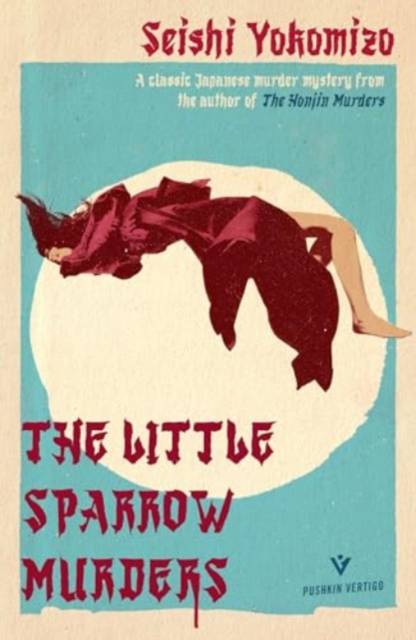
- Afhalen na 1 uur in een winkel met voorraad
- Gratis thuislevering in België vanaf € 30
- Ruim aanbod met 7 miljoen producten
- Afhalen na 1 uur in een winkel met voorraad
- Gratis thuislevering in België vanaf € 30
- Ruim aanbod met 7 miljoen producten
Zoeken
€ 13,95
+ 27 punten
Omschrijving
"With a pinch of John Dickson Carr and a dash of Agatha Christie, solver of impossible crimes" Kosuke Kindaichi returns for another murder mystery (The New York Times) As several bodies are discovered staged in bizarre poses echoing the lyrics of a children's song, the quirky, endearing Japanese detective must string together the clues to solve this fiendish puzzle The scruffy detective Kosuke Kindaichi returns to solve another satisfying stand-alone murder mystery. An old friend of Kindaichi's invites the detective to visit the remote mountain village of Onikobe, the site of a 20-year-old unsolved murder case. But no sooner has Kindaichi in the village than a new series of murders strikes - several bodies are discovered staged in bizarre poses, and it soon becomes clear that the victims are being killed using methods that eerily echo the lyrics of an old local children's song... As the legendary sleuth investigates, he soon realises that he must unravel the dark and tangled history of the village, as well as that of its feuding families, to get to the truth. The Little Sparrow Murders is the sixth classic Detective Kindaichi mystery to be published by Pushkin Vertigo. Kosuke Kindaichi is Japan's best-loved and most famous fictional sleuth, and Seishi Yokomizo one of the country's greatest crime writers. His whodunnits have sold an astonishing 55 million copies in his home country. Yokomizo is perhaps the most popular and feted crime writer in his country's history. His richly atmospheric classic mysteries are a treat for any fan of Golden Age whodunits, taking the reader all over post-war Japan, from remote mountain villages to pirate-plagued islands and the bustling streets of Tokyo. Yokomizo loved to craft ingenious puzzle plots, inspired by the greats of British and American crime, such as John Dickson Carr or Agatha Christie, while his detective, Kosuke Kindaichi, is everything a reader could want from a sleuth: brilliant, eccentric, charming, and unassuming enough to be fatally underestimated by many a murderer. . .
Specificaties
Betrokkenen
- Auteur(s):
- Uitgeverij:
Inhoud
- Aantal bladzijden:
- 320
- Taal:
- Engels
- Reeks:
Eigenschappen
- Productcode (EAN):
- 9781782278870
- Verschijningsdatum:
- 3/09/2024
- Uitvoering:
- Paperback
- Formaat:
- Trade paperback (VS)
- Afmetingen:
- 135 mm x 188 mm
- Gewicht:
- 272 g

Alleen bij Standaard Boekhandel
+ 27 punten op je klantenkaart van Standaard Boekhandel
Beoordelingen
We publiceren alleen reviews die voldoen aan de voorwaarden voor reviews. Bekijk onze voorwaarden voor reviews.











